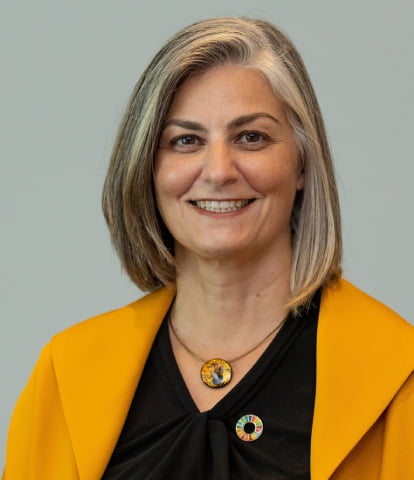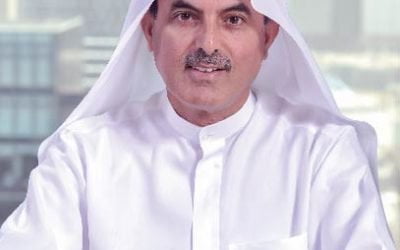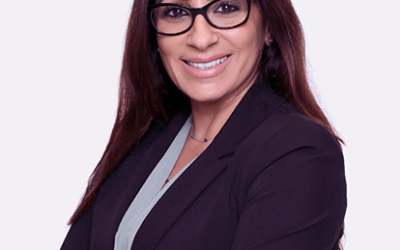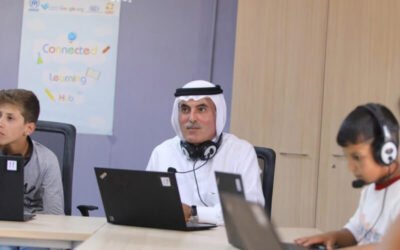Celebrating the heroes of International Day of Education
On this UN International Day of Education, we celebrate the multiple actors in global education ecosystems who continue to confront unprecedented obstacles caused by the pandemic.
Reflecting on Recovering and Revitalising Education for the Covid 19 generation, we have a long road ahead where success will reflect our collective drive to ensure inclusive and equitable quality education and lifelong learning opportunities for all.
The International Day of Education is a point of resolve in 2021 that reflects the escalation of a commitment to education from individual, private and public sector actors. Together we are focusing on innovative learning solutions because we need to future-proof the education ecosystem to protect the most vulnerable from losing their opportunities to learn because of microscopic and unpredictable threats.
The resilient courage and perseverance of students, educators and caregivers around the world as they have faced complex educational challenges has been inspiring.
Almost overnight, educators were forced to overhaul their professional approaches in response to ICT-centered education needs during this period. Teachers shifted gears into an online mode of teaching and became ad-hoc curriculum re-designers.
Amid work-based disarray, caregivers dove deep into their wards’ educational path, finding themselves on daily standby mode.
Students were forced to adapt to this change or lose their education. Too many of them have been traumatised by a lack of consistency in learning in a year marked by psycho-social trauma caused by sudden cyclical lockdowns, curfews, quarantines and varying onsite-online learning approaches.Countries that had already ventured into online and blended learning modalities prior to the pandemic fared better than other educational systems.
According to UNESCO, schools around the world have been closed for an average of 22 weeks since March 2020. In the 22 Arab states alone, over 13 million university students needed to adapt to the online delivery of courses given the campus closures. This proved to be challenging for too many of these young people whose dwellings are not all conducive to studying online for multiple reasons associated with poverty and inequity.
The path to attaining quality university education in the region and succeeding for millions of Arab youth is difficult and rests on the shoulders of guardians who are barely surviving economically.
Philanthropy has a role to play in joint solutions. At the Abdulla Al Ghurair Foundation for Education, programs and grants have been designed in collaboration with civil society and government partnerships to support Arab youth in the complete student to career trajectory. The Foundation has implemented scholarship programs on-campus and online, work-based learning modules, career readiness preparation, university and career counseling, mentorship and job placement opportunities. In line with AGFE’s commitment to SDG 4, there is a focus on investing in long term, regionally relevant education solutions.
Strategic innovation in education is needed to bridge the mismatch between skills and labor market requirements. The demands of sustainable development mean education institutions in the Arab region must move beyond traditional offerings and assure that the science, technology, engineering and math (STEM) related degrees equip students with practical analytical and advanced digital literacy skills. Online and blended certificates, professional diplomas, and degrees programs should provide work-ready graduates who are in high-demand because they have the skills and knowledge that are desperately needed today and the growth mindset for tomorrow.
At the Foundation, we work with partners who share our strategic goals and our values. For example, working with MIT, the American University of Cairo and the American University of Beirut, we jointly moved the needle on the provision of quality online learning in the region starting in 2017.
We have extended our collaborative approach with the launch of the UAE University Consortium for High-Quality Online Learning in 2020: A pragmatic partnership between the UAE Ministry of Education and nine leading universities to design, develop and deliver accredited online and blended degrees.
As we work to move education models online, joint efforts are needed to address the growing digital divide that currently acts as a barrier to basic education rights for millions of students globally. According to the World Bank, countries in the Middle East and North Africa Region fall behind in the development of broadband networks, internet penetration rates and the creation of region-specific content.
This pandemic has placed a spotlight on unequal access to connected devices. This mounting barrier to education is especially high for refugees and conflict-affected youth in the region. Sensible actions by donors and education stakeholders to tackle internet connectivity issues in real time will drive forward-thinking education policies. This shift, in turn, will positively impact the lives of caregivers, educators and students, our heroes on the ground, who have been courageous and steadfast in their support of cost effective, inclusive educational systems. We owe it to them and to ourselves, most importantly we need to take these steps for the future generations of youth to assure access to quality education for all.
Dr. Sonia Ben Jaafar, Chief Executive Officer, Abdulla Al Ghurair Foundation for Education



